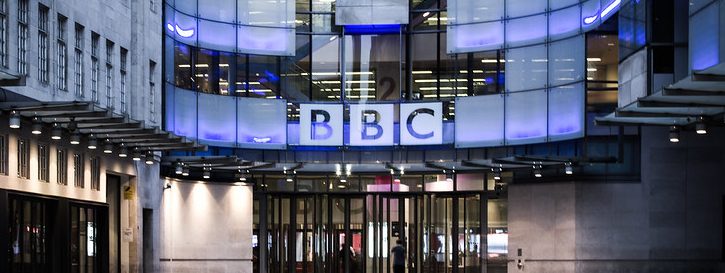Last week, BBC employees accused the broadcaster of failing to report on Israel’s war on Gaza “accurately”.
The British Broadcasting Corporation (BBC) has concluded an internal investigation into six of its BBC Arabic journalists, maintaining that no disciplinary action would be taken against them.
The six journalists were initially accused of displaying pro-Palestinian sentiment a week after 7 October amid Israel’s brutal bombardment of Gaza and consequently taken off air but not formally suspended.
In an email, the BBC informed the journalists that despite their tweets violating the organisation’s social media policy, no disciplinary action would be taken against them.
Five journalists, identified as Lebanese religious affairs correspondent Sanaa Al Khoury, Egyptian correspondent Sally Nabil, Egyptian journalist and producer Mahmoud Shalib, Cairo-based journalist Salma Khattab, and sports correspondent Amr Fikri, were advised to undergo training on social media and neutrality policies.
They were invited to resume their duties without further consequences.
As for the Lebanese program director Nada Abdul Samad, she did not attend the investigation, and there were reports that she was considering suing the news organisation.
The journalists were removed from broadcast duty on suspicion of either endorsing or sharing social media content allegedly critical of the Israeli government or explicitly supportive of Palestine.
Their posts came under the spotlight after an Arabic-language segment of the Committee for Accuracy in Middle East Reporting and Analysis ‘CAMERA’, which monitors the social media activities of Arab journalists in Western institutions.
The US-based NGO advocated for “balanced and accurate” coverage of Israel.
Camera initially pointed out the social media activities of these journalists, arguing that they exhibited a “bias” against Israel.
The BBC is said to have requested the removal of tweets and posts it viewed as “offensive”.
During the investigation, questions were raised about tweets and posts on the journalists’ personal accounts in the week following the Israeli war on Gaza on 7 October.
Allegedly, some tweets expressed doubts over the presence of unarmed Israeli civilians, while others included likes on videos depicting scenes from the Al Aqsa Flood Operation, which referred to Hamas’s infiltration of the occupied territories through air, land and sea on 7 October.
In a statement at the time, the BBC said: “We are urgently investigating this matter,” as quoted by the Financial Times on 16 October.
“We take allegations of breaches of our editorial and social media guidelines with the utmost seriousness, and if and when we find breaches we will act, including taking disciplinary action.”
Concerns over BBC coverage of Israel’s war on Gaza
This comes as BBC employees accused the broadcaster last week of failing to report on Israel’s war on Gaza “accurately”, investing greater effort in humanising Israeli victims compared with Palestinians, and omitting vital historical context in its reporting.
In a letter seen by Al Jazeera, at least eight UK-based journalists accused the broadcaster of “double standard” in its coverage in comparison to the way it reported on Russian war crimes in Ukraine.
The journalists requested anonymity for fear of reprisal.
The report came amid heightened humanitarian disaster in Gaza as a result of Israel’s relentless campaign on the besieged strip, which has so far killed more than 20,000 Palestinians, including more than 8,000 children.
Last month, reports emerged that BBC staff were allegedly crying in toilets and taking time off from work over the broadcaster’s coverage of Israel.
They accused the oldest and largest British broadcaster of being “too lenient” on Israel and “dehumanising” Palestinian civilians.
The British daily The Times reported that concerns were raised with senior editorial figures in a meeting in mid-October and an email about the BBC’s policy of “treating Israeli lives as more worthy than Palestinian lives” was sent to Director-General Tim Davie.
“Staff have been crying in the toilets and freelancers have been sacrificing earnings by not showing up to work because of the distress caused. Many people are feeling deeply disturbed,” a source told The Times.
BBC correspondent based in Beirut, Rami Ruhayem, said he had “the gravest possible concerns” about the coverage.
“Words like ‘massacre’, ‘slaughter’ and ‘atrocities’ are being used prominently in reference to actions by Hamas, but hardly, if at all, in reference to actions by Israel. Does this not raise the question of the possible complicity of the BBC in incitement, dehumanisation and war propaganda,” he said in an email to Davie, which was shared with BBC News international journalists.
Meanwhile, Palestine Action, the protest group that admitted to splattering paint on the BBC’s headquarters early in October, asserted that the BBC’s reporting on the Israeli war on Gaza has displayed significant bias against the Palestinian narrative.







